Detroit schools superintendent Nikolai Vitti: We can't use pandemic excuse anymore
Nikolai Vitti, superintendent of Detroit Public Schools Community District, has made a commitment over the past two years: There are no excuses not to improve.
Not even the pandemic.
It's a part of the superintendent's philosophy heading into the new school year in the largest school district in Michigan, with nearly 50,000 students. Detroit students will return to the classroom Aug. 28.
"I don't think districts can continue to talk about pandemic loss as an excuse as to why student achievement is not moving," he said. "Not anymore."
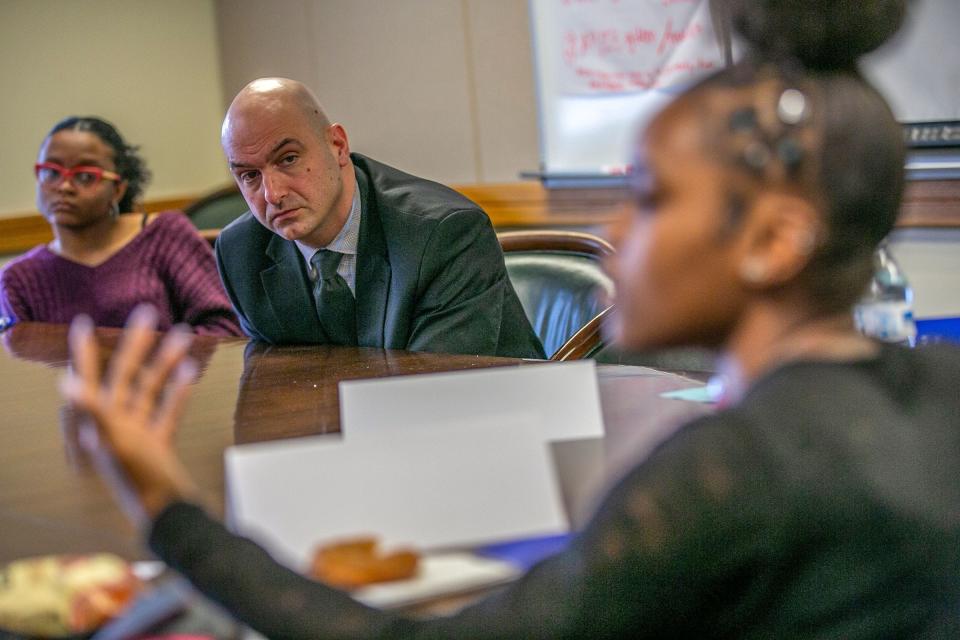
School districts are headed into the fourth full school year since the coronavirus pandemic shuttered schools and kicked off a crisis in America's classrooms. Since then, billions of dollars in federal aid have flowed into Michigan classrooms, meant to stop the scholastic bleeding. The pandemic — and specifically its disruptions to school operations — has frequently been the answer given to questions regarding falling test scores, widening achievement gaps and rising concerns over mental health. All have been very real consequences of closed schools and other inequities the pandemic laid bare.
But Vitti, and others around Michigan and metro Detroit, are ready to turn the page into a new school year and a fresh emphasis on teaching and learning. All done while keeping a close eye on the numbers, including benchmark assessment data taken on a district level throughout the year.
Those numbers also include soon-to-be-released results from the M-STEP, taken in the spring, and expected to be made public later this month.
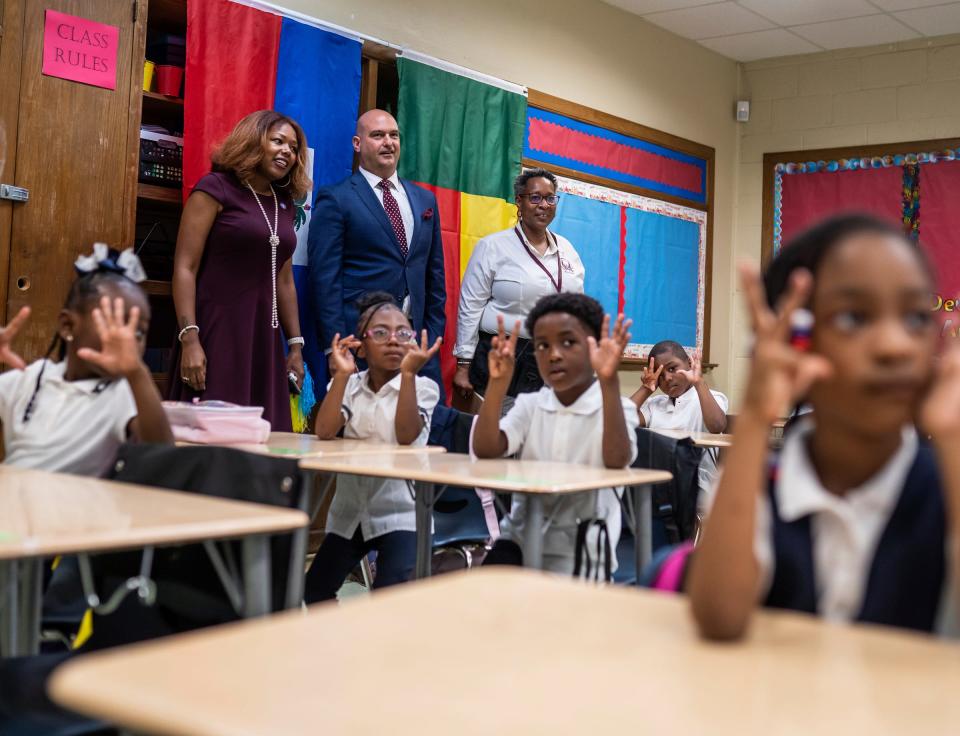
"As of about a year ago and into the school year that just ended, we were seeing signs that recovery was starting to happen," said Tara Kilbride, interim associate director of Education Policy Innovation Collaborative, a research center within Michigan State University. "It's a long road though."
Where Detroit, and Michigan, stand academically
National test and benchmark assessment scores show that Detroit remains academically behind statewide averages and those of other major cities across the nation in proficiency in English and math. On the national NAEP test, Detroit remained at the very bottom in reading and math proficiency among 26 major city school districts, falling just below Cleveland.
But Vitti is optimistic about the direction Detroit students are going.
In benchmark assessments students took this spring, Detroit was one of just a few major city school districts where students showed improvement from last year — the keyword being "improvement," Vitti says. The districts being compared are members of the Council of the Great City Schools, a national coalition of large city school systems, which includes districts in New York City, Philadelphia, Chicago, Los Angeles, San Francisco, Atlanta and more.
The data shared by Vitti shows that overall, Detroit students score lower in both math and reading. However, between spring 2022 and spring 2023, Detroit students largely showed more improvement in both subjects than did students in other districts averaged together. For example, in fourth grade reading, city schools averaged a 2-point loss, but Detroit students averaged a 2-point gain.
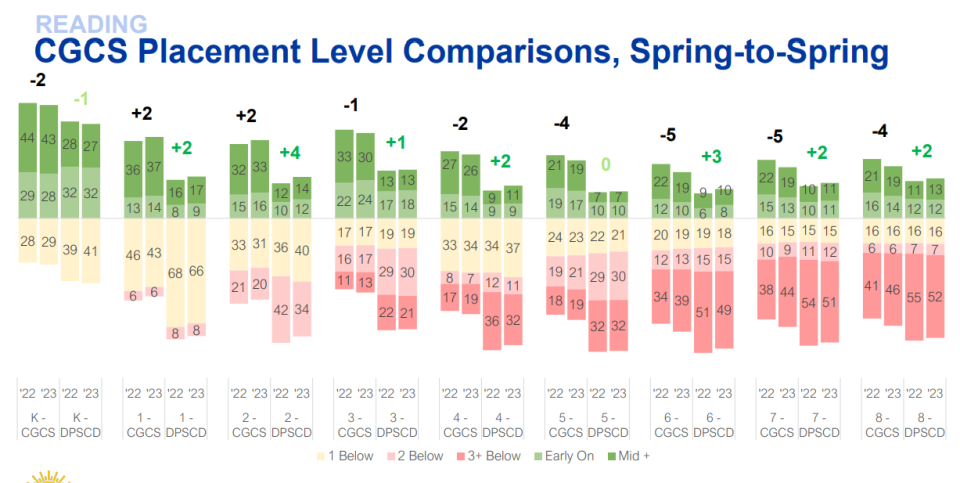
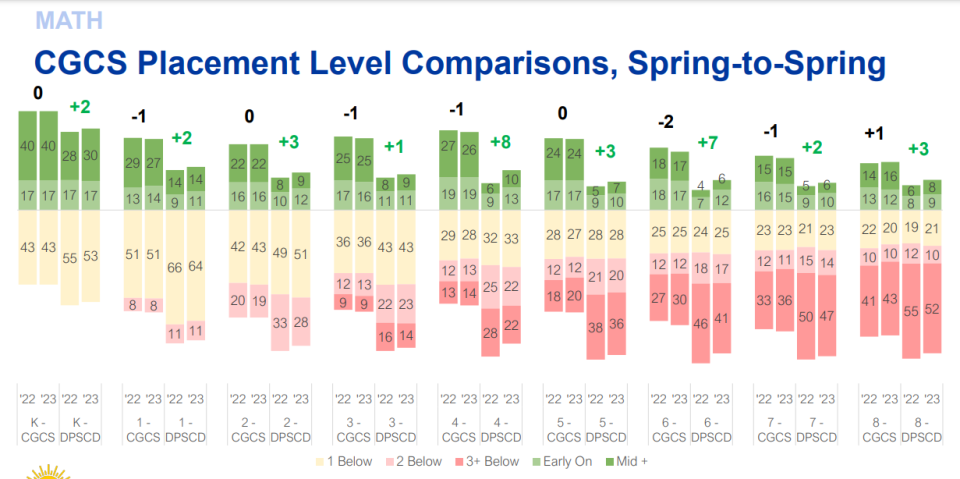
"I'm just going to emphasize improvement," he said. "I'm not saying anything beyond improvement. ... I'm not saying that you go zero to 100 in proficiency. ... You have to show improvement. Our students and our families deserve that."
Statewide, NAEP data showed that Michigan students' proficiency in reading and math declined after the pandemic, following a national trend. M-STEP scores from this spring will likely show whether students have improved in reading and math between now and 2022 — last spring, more third-graders were significantly behind in reading compared with pre-pandemic levels.
Michigan students of color and those from low-income households fell behind academically at disproportionate rates, Kilbride said, and were more likely to be affected by school closures.
"We have seen a lot of recovery in those groups specifically, but you would expect more recovery in situations where there's more recovery necessary," she said.
In Detroit and Flint, the pandemic isn't the only crisis from which both districts have had to recover. Detroit schools emerged from a state takeover in 2017 with a fresh financial start that leaders hoped would put the district on a better, and fresh, path. And Flint students are still dealing with the effects from the Flint water crisis, which began in 2014.
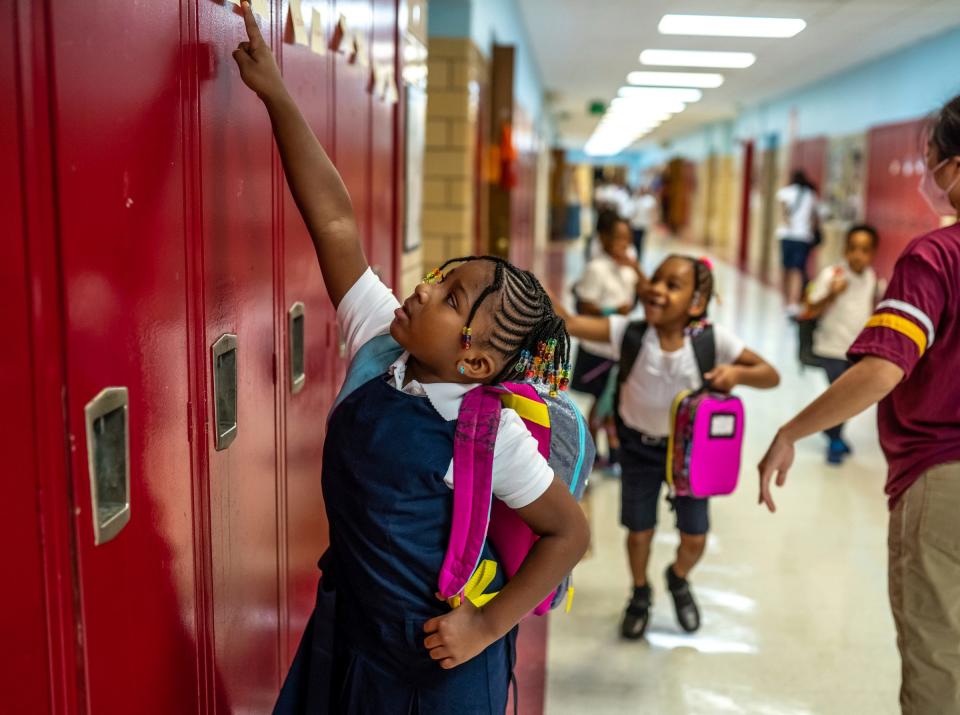
"It's an ongoing process" Flint Superintendent Kevelin Jones said. "This is not something that you turn around overnight."
Cindy Eggleton, CEO and co-founder of nonprofit Brilliant Detroit, which offers literacy tutoring, said that many gaps in literacy and other subjects existed in Detroit before the pandemic, but were exacerbated by the public health crisis that forced learning to go virtual, which wasn't effective for many kids. That means organizations must focus on recovery through intentional, coordinated effort, she said.
"We needed to do that beforehand, but it's so intense, we feel it so strongly now," Eggleton said. "And I think it does make everybody coming together in a more coordinated way."
Research into child wellbeing has also long showed that academic success occurs only when students' other needs are met, including mental health and nourishment needs. That's why schools are also increasingly offering wraparound resources for families, from school psychologists to free meals, which the state approved for all students in the most recent budget.
Strategies and approaches
On an August day just a few weeks before the first day of school in Detroit, a group of about a dozen students were already grinding away on reading and other enrichment activities in a bright house in the Martin Park neighborhood on Detroit's west side.
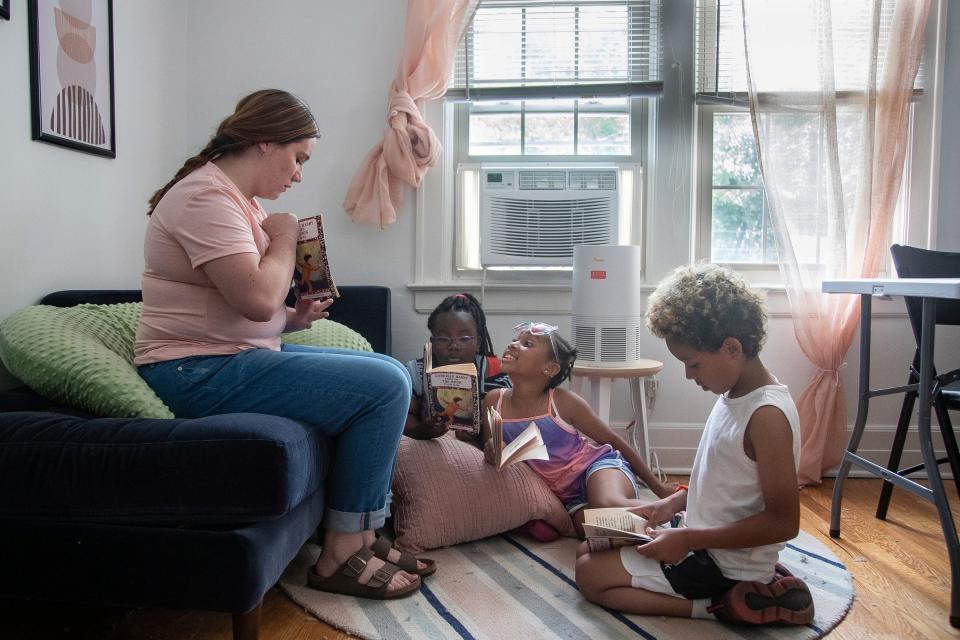
Three 8-year-olds ― Caitlyn, Wynter and Isaiah ― gathered around Erin Letourneau, 20, a student at University of Detroit Mercy and a tutor who works with Brilliant Detroit, a nonprofit that connects neighborhoods in Detroit through education programming, like tutoring.
Letourneau directed the 8-year-olds, all incoming third graders, to split up compound words: baseball, pancake, homemade and outdoor. Caitlyn, wearing pink unicorn sunglasses, beamed with pride as she split the word "outdoor" into two, out and door.
Third grade is widely known as a milestone year for young readers. Academics often point to it as the point where students need to transition from learning to read, to reading to learn.
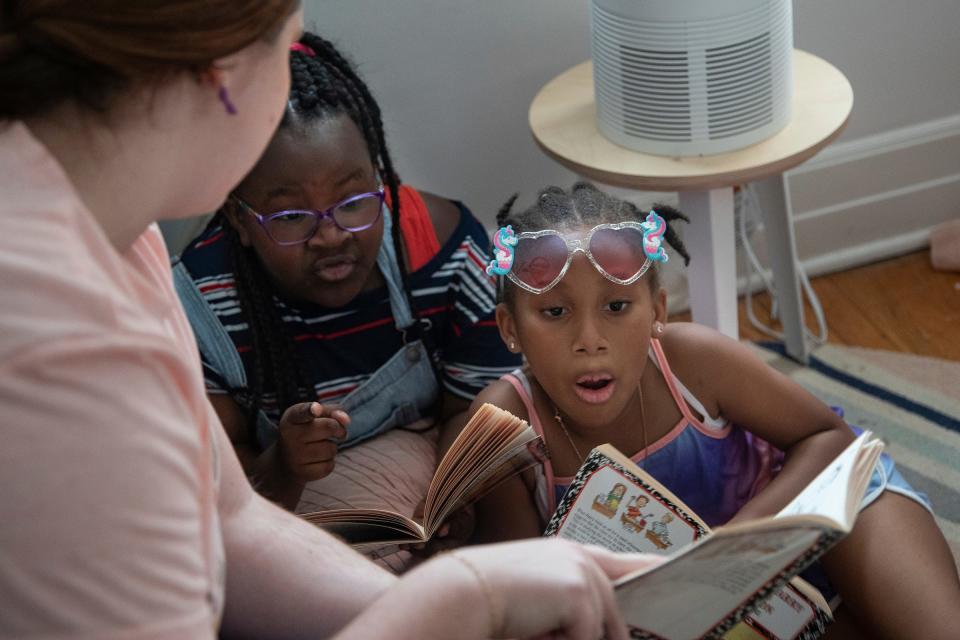
Eggleton said summer initiatives like this are fundamental for preventing what's called summer slide, where students lose some of their academic progress while they're off from school.
"There is not enough going on in the city for the amount of gap that has happened for kids, even prior to COVID," she said. "We've stepped into this and we're serving over 600 kids this summer."
Brilliant Detroit provides all-day summer programming with tutoring four days a week and special reading initiatives to encourage families to read together.
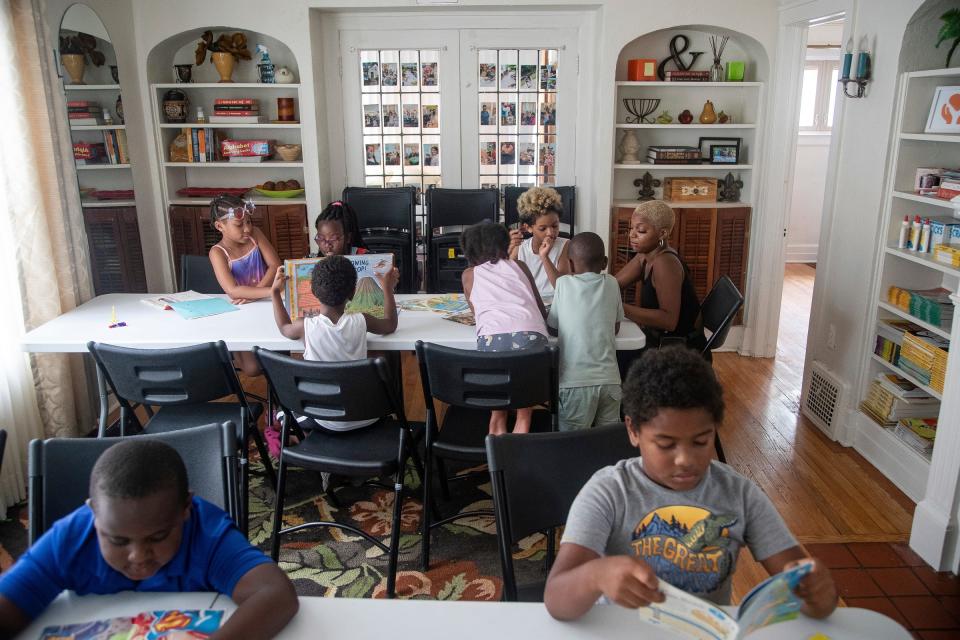
In Flint, Jones said the district continues to promote its wraparound services to families in-need to improve mental and physical health, including dedicated therapists at every school, community health workers and social workers.
"With that, we are able to not only educate the child, but look at those areas of need and make sure that they are being fed the best we can," he said.
And in Detroit once school starts, Vitti said the name of the game will once again be improvement. The district is hiring 90 additional academic interventionists this school year with grant money from the MacKenzie Scott Foundation and federal money for schools that serve low-income students. Interventionists can work with students during the school day, to tutor in subjects where intervention is needed. And the district is attempting to lower class sizes, so students get more attention from educators.
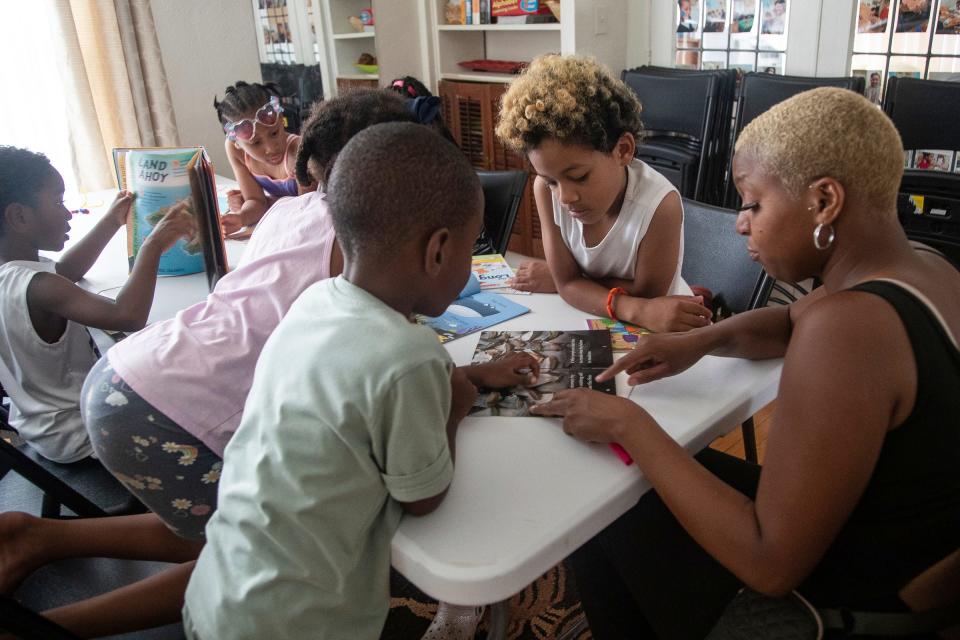
"I think that's encouraging, to give parents the assurance that we are doing the right things, even though it's been challenging," he said. "And the data is showing that."
Contact Lily Altavena: laltavena@freepress.com.
This article originally appeared on Detroit Free Press: Detroit schools superintendent Vitti rejects pandemic excuses

